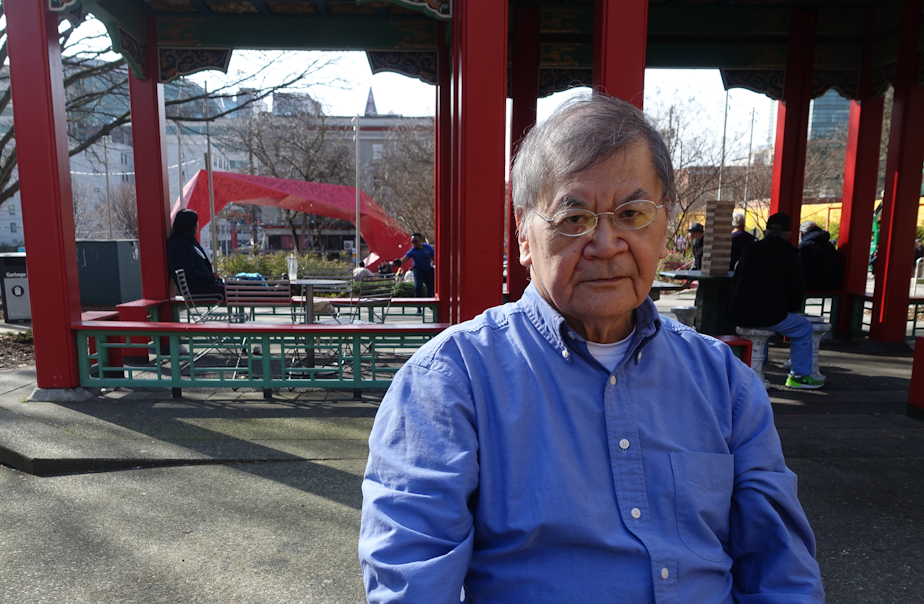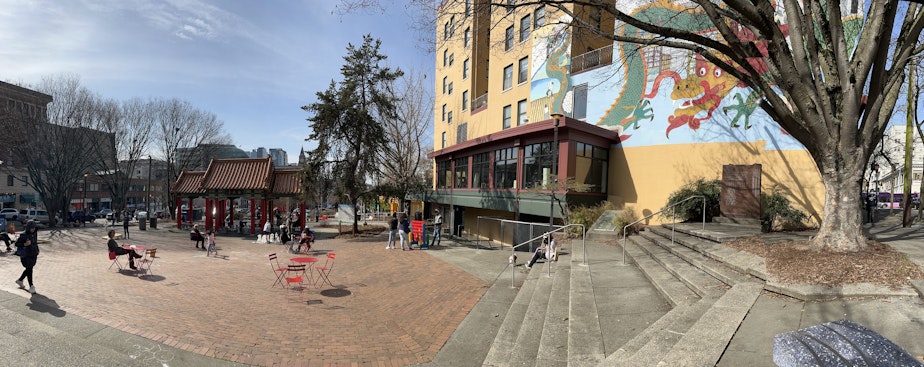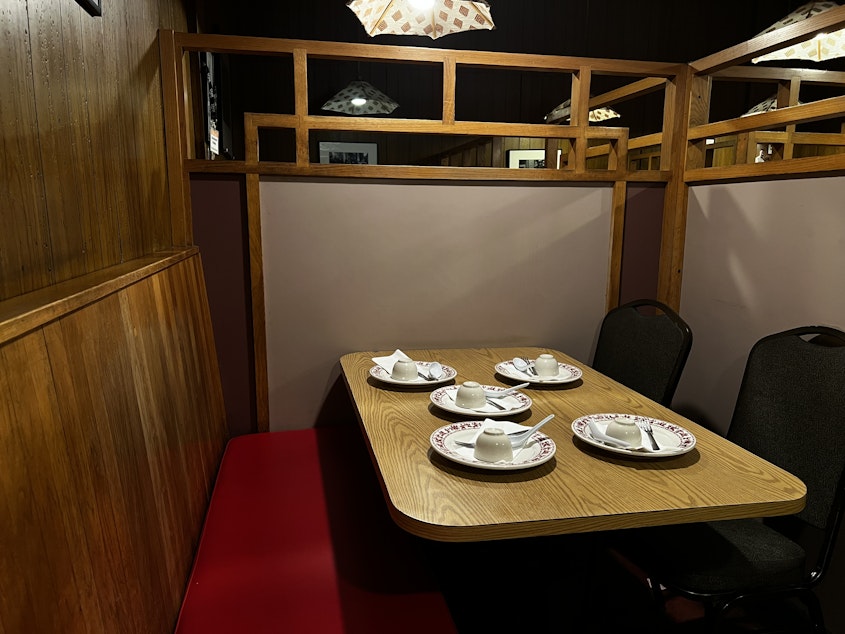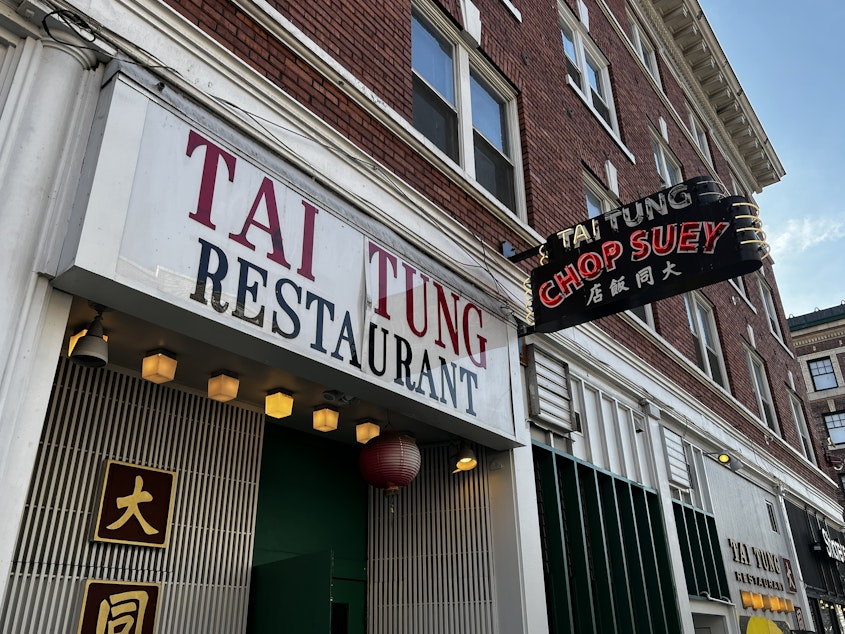Poet Koon Woon on his verses of solitude and the working-class immigrant life

Each day during the month of April, KUOW is highlighting the work of Seattle-based poets for National Poetry Month. In this series curated by Seattle Civic Poet and Ten Thousand Things host Shin Yu Pai, you'll find a selection of poems for the mind, heart, senses, and soul.
K
oon Woon has been an important member of the Seattle poetry community for decades. He’s the publisher of Goldfish Books and Chrysanthemum Poetry Journal, as well as a formidable poet in his own right. But his poems aren’t lofty and highbrow — they're deeply rooted in his lived experiences of poverty, working-class immigrant life, and living on the margins.
Shin Yu Pai met with Woon at Hing Hay Park, in the center of the Chinatown-International District. Here, Woon read "The High Walls I Cannot Scale," from his poetry collection, "Water Chasing Water."
In the poem, the speaker is trapped by their economic circumstances. He grapples with the immensity of the city, a place where everything feels alive but separate from the self, at a distance. It’s a poem of diaspora, a search for community and connection in the face of the monolithic forces of the modern world that keep him alone.
Woon wrote it in the style of the ancient Chinese poet Tu-Fu, one of the major poets of the T'ang Dynasty, who lived a life of hardship and forged his own revolutionary style of poetics.

Sponsored
After, Pai and Woon walked to nearby Tai Tung, the oldest Chinese restaurant in Seattle, and a place where Bruce Lee once worked.
Here, Woon read another of his poems, titled “Chinese Waiters.”
True to Koon’s math and physics background, much of his poetry is based on the idea of multiple universes. He says that each room is a world unto itself, one of many that exist anytime, anywhere.
In the poem, the character Sam Wo is inspired by a waiter Woon would frequently encounter.
""I'm a Ph.D. mathematician, so that'd be a joke between us," said Woon. "He was like, 'Have you solved any difficult math problems?' No, not today, Sam, I just came in for a bowl of soup today."
Sponsored
Woon notes some of his influences are T.S. Eliot, Wallace Stevens, and Donald Justice, each for their poetic and philosophical style. Justice, in particular, has a multifaceted meaning to him.
"I think poetry without justice, without beauty, is nothing. It's empty words, a bag of air."
The world that Woon creates with "Chinese Waiters," based in Tai Tung, is one of witness, and recognition of the work Chinese immigrant laborers have done to make the city run.
"It's time that we say that we should no longer be waiters, but we should be writers as well," said Woon.
"We should create."
Sponsored
Listen to the full Soundside segment in the Chinatown-International District by clicking "play" on the audio above.








